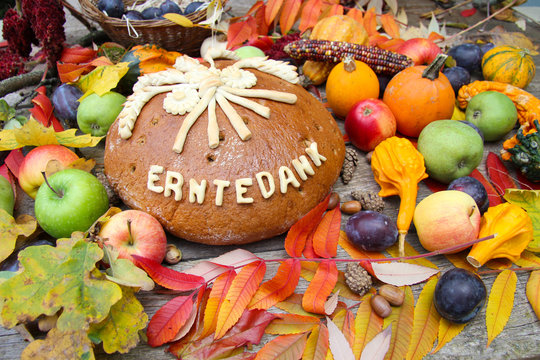
By Gracyn Van Bemmel //
While Thanksgiving may be a uniquely American holiday, the spirit of gratitude it embodies resonates worldwide.
Across cultures and continents, people come together to celebrate harvests, express thankfulness and honor the bonds that bring them closer. These traditions, though distinct in their origins and customs, share a common thread: the universal human need to pause, reflect, and give thanks.
In Japan, Kinrō Kansha no Hi, or Labor Thanksgiving Day, is observed on Nov. 23 each year. This national holiday traces its roots back to ancient harvest festivals but has evolved to recognize and appreciate hard work and contributions to society. Schools often have children create thank-you cards for local workers, and ceremonies are held to honor labor unions and community members. Though less focused on feasting, the day emphasizes gratitude for the collective efforts that sustain society.
“I remember when I was little, my grandmother would have us write thank-you cards as a way to honor our elders and people in the community,” Harford County daycare teacher Natalie Kimberly said. Kimberly comes from a biracial household in which her mother is Japanese, and her father is European. Growing up, she didn’t regularly interact with the Japanese side of her family, as most of those relatives live in Japan or speak little English. On the rare occasion that they did meet, her Japanese relatives made sure to introduce her to as much of the culture as they could.
Korea’s Chuseok is one of the country’s most significant holidays, celebrated over three days in the autumn, usually in September or October, depending on the lunar calendar. Frequently referred to as “Korean Thanksgiving,” Chuseok is a time to honor ancestors and give thanks for the year’s harvest. Families gather to share traditional foods like songpyeon, a type of rice cake, and perform ancestral rites called charye. It’s also a time for family reunions and visiting hometowns, making it a cherished occasion for reflection and gratitude.
Jocelyn Kim, a 28-year-old hairstylist at an Ocean City salon, and her family practice such traditions. “It’s one of my favorite times of the year because all my relatives are spread out across America now that we’re older, but we all go home to spend time with each other during Chuseok,” she said.
Germany’s Erntedankfest, meaning “Harvest Thanksgiving Festival,” is typically observed in late September or early October. Rooted in Christian traditions, the festival includes church services, parades, and communal meals featuring freshly harvested fruits, vegetables, and bread. In some regions, children carry lanterns in processions, while others host markets and fairs. While less commercialized than American Thanksgiving, Erntedankfest is a heartfelt acknowledgment of nature’s gifts.
“Growing up in America, I’m used to seeing the American way of celebrating Thanksgiving,” Jenna Kohles said. A graduate of Clemson University, she lived in the United States for most of her life before moving to Germany to complete her doctoral degree. “I’ve lived [in Germany] for 10 years now, so it’s really cool getting to see how my second home celebrates giving thanks,” she added.
Other festivals include Pongal in southern India. The multi-day festival that takes place in mid-January to mark the end of the winter solstice and the beginning of the harvest season. Named after a popular rice dish cooked during the festival, Pongal is a joyous celebration filled with rituals, such as boiling milk and rice until they overflow—a symbol of abundance. Families clean and decorate their homes, pay respect to cattle for their role in farming, and express gratitude for nature’s blessings.
In Ghana, the Homowo Festival is celebrated by the Ga people as a way to honor a successful harvest and remember times of famine that were overcome. Usually held in August or September, the festival name translates to “hooting at hunger.” Families prepare and share kpekple, a special cornmeal dish, and participate in vibrant parades filled with singing, drumming and dancing. Homowo is not only a celebration of abundance but also a time to strengthen community bonds.
From the festive rituals of Ghana to the solemn gratitude of Japan, these celebrations remind us that giving thanks is a universal tradition. Each culture, in its unique way, finds time to reflect on the blessings of the year and share those moments with loved ones. By exploring these traditions, we not only broaden our understanding of gratitude but also gain a deeper appreciation for the rich diversity of the human experience.

Be the first to comment